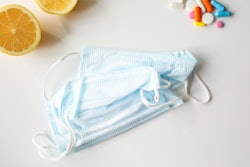
Health authorities and state and local governments are recognizing the linen, uniform and facility services industry as an essential service in battle with the Coronavirus disease (COVID-19). Consisting mostly of small, independent family-owned and operated businesses, the industry supplies, launders and maintains essential, environmentally friendly reusable textiles for restaurants, hotels, healthcare facilities, manufacturing, infrastructure, other businesses and government agencies. In addition to linens and uniforms, personal protective equipment (PPE) as well as hygiene, first aid and other facility services, are provided.
During quarantine/isolation mandates, the “essential services” designation allows laundries to stay open to serve other businesses designated as “essential,” including those mentioned above plus grocery stores, food processing, home-based and long-term care, public utilities (water and energy), first responders, laboratories, pharmaceutical manufacturers and other fundamental supply chain businesses.
Members of TRSA, Alexandria, Va., are on the front line of providing clean, safe environments for their customers’ employees, customers and the general public.
“Despite this designation and critical role of the textile services sector, we are seeing very different results from the impact of COVID-19,” says TRSA president and CEO Joseph Ricci. “Companies serving healthcare facilities are nearly at capacity, but those serving restaurants and hotels are laying off workers. We anticipate sales to decline by $10 billion during the next three months, prompting the loss of between 80,000-100,000 jobs. Without aggressive and immediate action from the federal government, many laundries will close their doors, permanently eliminating providers of these essential services and leaving the country ill-prepared to rebound.”
Other governments around the world are also recognizing the essential services provided by linen, uniform and facility services. In the UK, research conducted by the Textile Services Association (TSA) demonstrated that essential activities such as health and social care services cannot safely function without bed linen, scrubs and patient wear washed to very high specifications. If this service isn’t received by a hospital for two days, new patients cannot be admitted and only urgent care can be provided.
“Because our industry serves virtually every type of private- and public-sector organization across the economy, most Americans benefit at least once per week from the hygiene and safety of products we provide to our customers. This highlights the imperative that laundries be considered essential to a sound public health policy,” Ricci says.


















